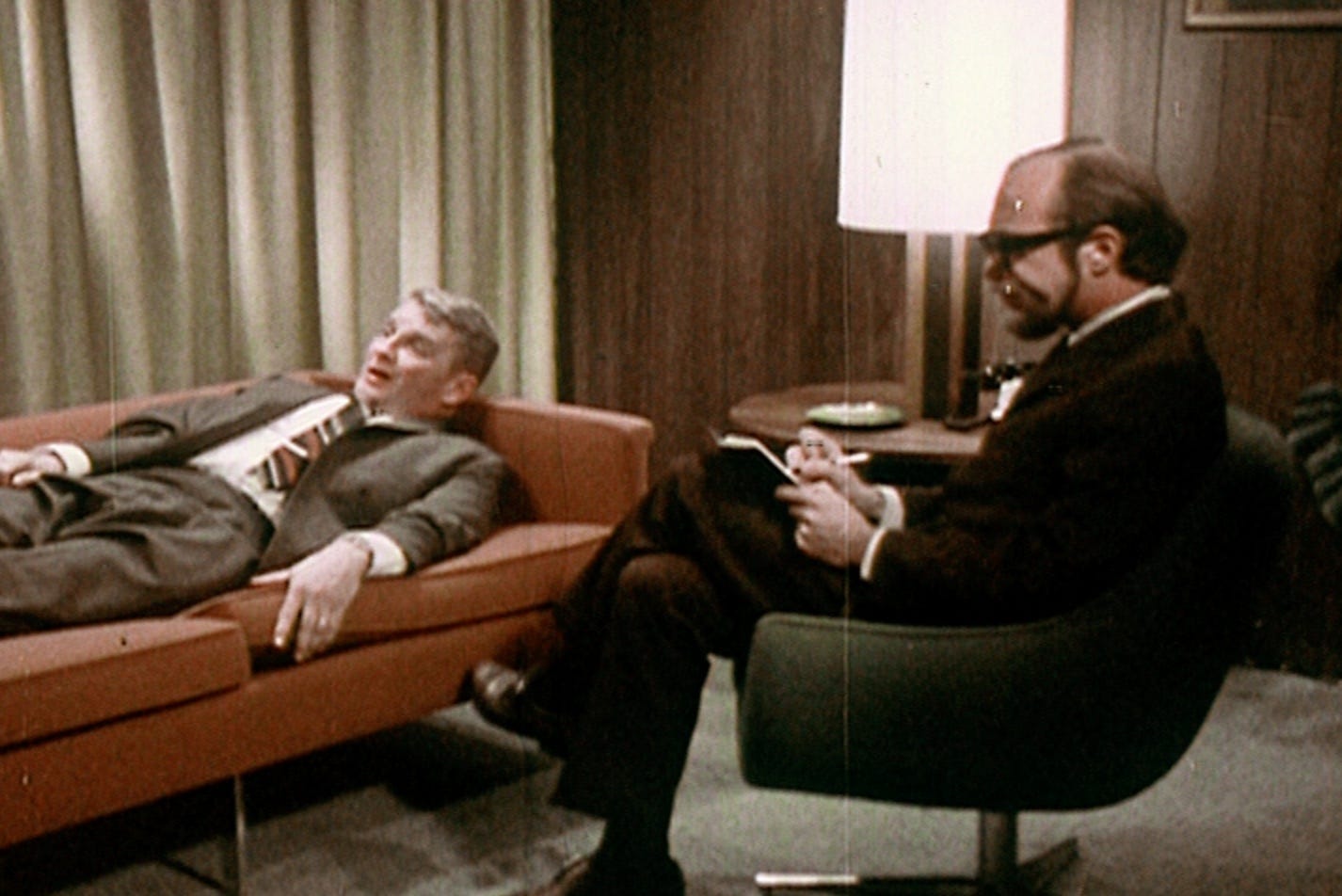The Truth About Therapy, Part I: A Good Therapist Is Damn Hard to Find
One man's journey to find "someone to talk to." It was a lot harder (and sometimes weirder) than he expected.
I had a pretty big depressive episode when I was a senior in high school. It was likely set off by years of relentless, stressful grinding and striving; I was doing AP classes, football, work, church activities, student council, and more. It was a lot. I went from feeling overwhelmed, to feeling like I was drowning, to feeling absolutely psychologically unmoored.
My depression was deep and lasted several months.
My second visit from the black dog happened after I graduated from law school in 2009. Several months prior, we had lost our first baby during Kate’s pregnancy. At the time, the demands of studying, running a fledgling blog, publishing a book, and trying to land a job at a law firm — while also striving to be a rock for Kate — left me little time or space to process the grief I was experiencing. But eventually, my sadness caught up to me. The combination of grief and acute burnout fed into each other, deepening both states and pushing me into a cataclysmic funk.
With time, I got through that bout of depression as well.
In addition to these two major bouts of depression, I also regularly pass through lesser jags of melancholy. I can be an Eeyore in disposition. I tend to focus on the negative and can quickly go down spirals of rumination when I encounter setbacks.
I don't want people to get the wrong impression. I'm not constantly a grump and a sad sack. I’m not sunny or chipper, but I don't go around acting morose all the time, either. I think I'm pretty charismatic and engaging, or so I've been told. I just have these private bouts of melancholy that only those closest to me know about.
In the years after law school, I sometimes considered visiting a therapist to talk about my melancholic moods. But I never did because of time constraints. So, I settled for "bibliotherapy," or reading books and studies about treating depression to treat my own. I've spent a lot of time researching the subject. I reckon I've done enough research and writing on mental health to have what amounts to a master's degree in psychology.
The insights I've gleaned from my bibliotherapy have helped; I think the DIY practices I’ve implemented have kept me from having another major depressive episode. Through the lifestyle habits I detail here, I’m able to keep the black dog at bay, and when it arrives, I can put it on a leash fairly quickly.
But I’ve never been able to ward off my funks altogether, and they can be a source of frustration. Oftentimes, they come on when the stress level in my life rises above a certain threshold. But sometimes they seem to come on randomly, with no clear cause. Either way, they leave me feeling negative, irritable, and lethargic, making both me and those around me miserable.
Back in 2016, I was going through a more intense bout of my lesser melancholic jags and feeling really fed up that I didn’t have a steadier, more consistent disposition.
At the time, you were seeing the beginning of a cultural enthusiasm for mental health therapy: every article and book I read seemed to recommend it. No matter the problem in your life, the answer was, “You should talk to someone." Numerous AoM podcast guests touted therapy’s benefits; even when they suggested practices that could also be beneficial for mental health, they would insert a seemingly obligatory caveat that therapy was also important. Even if you didn’t have a serious mental health problem, therapy was recommended for helping you sort yourself out and further optimize your life — it could make the happy even happier. It got to seeming like having a therapist was de rigueur for everyone’s wellness, like getting regular check-ups from a doctor and dentist. Amidst this cultural push, you almost got the impression something was wrong with you if you didn't go to the therapy.
So, I decided I too should join the ranks of those positively changing their lives through the power of professional therapy.
What I’ve discovered in the decade since then is that the reality of therapy doesn’t always live up to the hype.
Today, I’ll start a two–part series on this mismatch, beginning with the fact that while “You should talk to someone” sounds like an easy enough imperative to fulfill, finding a good therapist is a whole lot harder than you’d expect.



